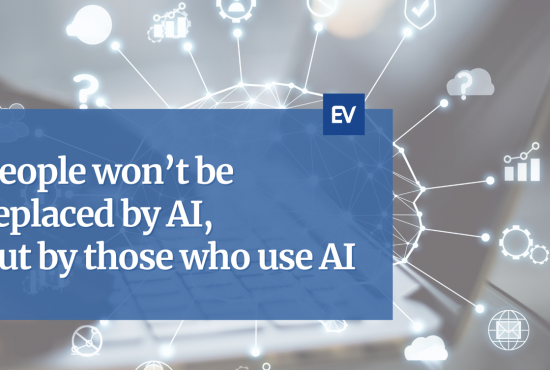Like any other sector, HR is being massively transformed with the joining of Generative AI in everyday tasks.
Through automation, AI streamlines repetitive HR tasks, allowing professionals to focus on strategic endeavors.
In recruitment, it enhances decision-making by analyzing vast datasets to identify patterns in successful hires, reducing biases and optimizing the hiring process.
AI-driven chatbots improve employee experiences by providing instant support, while predictive analytics aids in workforce planning.
Personalized learning and development, data-driven decision-making, and the promotion of diversity and inclusion further exemplify how generative AI transforms HR into a more agile, informed, and employee-centric domain, adapting to the evolving needs of the modern workplace.
Applying Generative AI in the hiring process
Human Resources (HR) can use generative AI to transform the hiring process. Initially, AI assists with resume screening by quickly assessing many resumes, ensuring a more objective and efficient applicant selection. It makes candidate sourcing easier by actively searching across several channels, increasing the talent pool and enabling proactive recruitment activities. Chatbots powered by AI can connect with candidates early on, offering information about the organization and guiding applications through the initial phases. Automated interview scheduling simplifies the process even further, improving collaboration between candidates and interviewers. AI adds to predictive analytics by evaluating historical data, assisting in discovering patterns associated with successful recruits and enhancing the overall quality of hiring decisions. AI is critical in reducing prejudices throughout the hiring process and establishing a more equitable workplace.
Furthermore, AI-powered solutions aid in continuing talent development by developing individualized learning programs based on individual abilities, performance, and career goals. AI improves the onboarding experience by automating administrative tasks and giving important information to new hires, resulting in a smoother integration into the business culture. Using AI to continuously analyze candidate and employee input, HR can make data-driven modifications, enhancing the hiring process and contributing to the overall success of talent acquisition and management inside the organization.
Generative AI advancing employees’ learning and developing experiences
Generative AI revolutionizes HR's approach to learning and skill development by introducing personalized learning paths. Through the analysis of individual employee data, AI enables HR to tailor training programs to each employee's strengths and areas for improvement, maximizing the impact of learning initiatives.
Moreover, AI powers adaptive learning platforms, dynamically adjusting content and difficulty levels based on an employee's progress. This ensures that the learning experience remains engaging and effective, promoting continuous skill development. Additionally, AI conducts skill gap analyses, allowing HR to pinpoint areas where employees need to enhance their skills. This targeted approach facilitates strategic training interventions, addressing specific competency needs and aligning skill development with organizational objectives.
Create a Data-driven HR ecosystem with generative AI
Generative AI is crucial in developing a data-driven HR environment for businesses. As businesses appreciate the value of understanding their employees, AI becomes increasingly important in offering comprehensive information. Organizations can acquire a more detailed picture of their staff, including individual capabilities, strengths, and shortcomings, by employing generative AI. This richness of data enables HR managers to make more informed decisions, resulting in more successful people management strategies and laying the groundwork for a dynamic and responsive HR ecosystem.
Knowledge obtained from generative AI analytics, in particular, enables companies to strategically design upskilling programs. Understanding employees' specific skills and developmental needs enables HR to tailor training initiatives, ensuring they are not only relevant to the individual but also aligned with the organization's evolving needs. This tailored approach to upskilling not only improves employee competencies but also helps to create a more agile and adaptive workforce. Furthermore, because career advancement is still a significant driver of employee happiness and retention, leveraging generative AI insights in career planning guarantees that organizations can provide real growth possibilities, ultimately assisting in the retention of top talent inside the firm.








